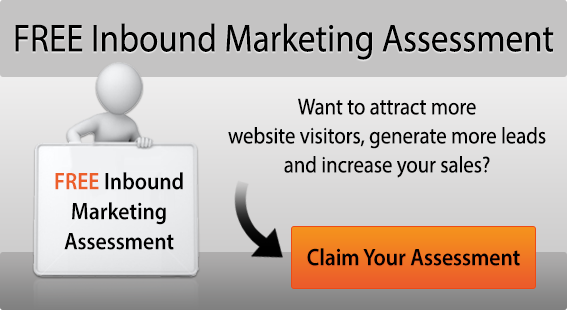Make Customers Come To You: Marketing Automation Explained

Today's modern business means that we are go go go all the time with not much time to focus on the details of marketing. As busy marketing departments it's essential to now speak to potential and current customers regularly to ensure a successful transition through the buyers journey.
What today's modern marketers face is the challenge of time and how to really get everything done on time. Fortunately for busy marketers, there is a way to ease this time crunch: marketing automation.
As the name suggests, marketing automation is simply the name given to software tools that are designed to help business owners and marketers make smarter, more informed decisions about their marketing campaigns.
First it’s going to help your business if we take a more in depth look at the automation concept and what it is and how it’s going to affect your business.
Marketing automation
First things first, marketing automation isn't the quick fix we have all been looking for. Marketing automation and the inbound marketing philosophy requires time and effort to effectively work.
Marketing automation is about automating the process of gathering and organising data about your existing prospects so that you can more efficiently make decisions about your marketing campaign. Marketing automation also focuses on taking away tasks such as sending follow up emails to clients manually and setting up automation to do this, when an event or offer is triggered by the customer. In their basic guide to marketing automation, HubSpot warns potential users of automated marketing that this technique is not one that can be used for generating leads.
In fact, HubSpot goes onto explain that the biggest mistake which leads to marketing automation failure, is when a marketer pays for a huge list of unknown leads from an external company and attempts to enter these leads into the buyers journey using marketing automation.
In most cases this just sends your brilliantly crafted marking emails into the target markets’ junk folders, just waiting to be deleted.
I want to now explain the areas where marketing automation can help in your business.
1. Email marketing automation: everything from the timing of your messages to the way your leads are segmented and when this correspondence is sent out, can be automated by marketing software that uses in-depth analysis to help you decide on an ideal strategy for email campaigns.
2. Lead scoring: have you ever wondered how likely it is that your leads will actually convert into sales? Marketing automation software allows you to do a better job of predicting how hot your leads are by scoring them based on your customised profile of an ideal customer.
3. Social media marketing and analytics: wondering which of your social media posts are getting the most attention amongst which group of prospects? Are you curious about how your social media activity is actually impacting website traffic? Social media analytics can give you all of this information, and more
These areas make up just a small fraction of what is possible with automated marketing. The only way for you to determine exactly which automation tools work for you and which ones do not is by starting with a marketing automation plan and adding/removing areas as your business evolves.
How to get started with inbound marketing
Before you determine exactly which kind of inbound marketing platforms are best for your requirements, it is wise to have a strong idea of what your goals are. Maybe you are looking to get a stronger understanding of social media metrics so you can do a better job of appealing to prospects on this medium, or perhaps you want to determine how to optimise your landing page to receive the most newsletter signups.
Whatever the case may be, you must have a strong sense of what your goals are for marketing automation: otherwise, you run the risk of wasting time and money on a sophisticated marketing platform that doesn’t do what you need it to.
After making this decision, you should understand which of the popular inbound marketing automation platforms is right for your company. The market leader in inbound marketing and marketing automation is HubSpot. Where HubSpot distances itself from the competition is the easy setup of automation and the fantastic reports and information tracking, which ensures you track your marketing results.
JDR Group are a HubSpot partner agency, and one of only a handful of HubSpot platinum partners in the UK. To find out more about HubSpot, and how working with a HubSpot partner can benefit you, go to: https://www.jdrgroup.co.uk/hubspot-partner-agency
It is very important to understand that no matter how advanced your marketing tools are in your business, never forget that you are still looking to attract real human beings to your company. We have all been subject to mass market emails and automation that clearly lacks the human element to the marketing. The first thing that happens usually is that we send it to junk and move on.
Put yourself in the shoes of your prospects and think about what kind of impression they might get from your marketing correspondence. One simple guideline to help you in this regard: the easier it is for your prospective customers to tell that they are being sent automated marketing correspondence, the less likely it is that they will respond or be engaged by this correspondence.
With a clear understanding of your goals, the right marketing platform, and a healthy dose of perseverance, it is very possible for your business to successfully use inbound marketing automation to take your marketing campaign’s ROI to new heights.
Article by Dale Bonser


